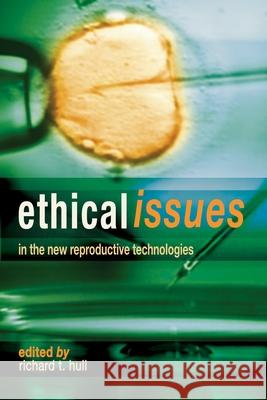Ethical Issues in the New Reproductive T » książka
Ethical Issues in the New Reproductive T
ISBN-13: 9781591023005 / Angielski / Miękka / 2005 / 373 str.
In the last few decades, as new reproductive technologies have been developed, couples desiring children have increasingly turned to various medical interventions when natural conception has been unsuccessful. These new technologies have raised ethical concerns from various quarters, including medical ethics committees, the American Fertility Society, and the Roman Catholic Congregation for the Doctrine of the Faith.
In this informative overview of the ethical implications of reproductive technologies, philosopher Richard T. Hull offers a cross-section of the thinking of individuals specializing in the ethical and legal problems involved in this new area of medicine.
The contributors reflect interests as varied as those of the enthusiastic proponent of the new reproductive technologies, the feminist opposing the exploitation of women, the social critic worrying about erosion of the responsibilities of parenting, and the traditionalist concerned with the transformation of the fundamental moral fabric and social character of the family. Many of the chapters include cases for further discussion and reflection. Also included are three speculative scenarios: selections from Margaret Atwood's The Handmaid's Tale, Aldous Huxley's Brave New World, and Gena Corea's report of the drive to develop an artificial womb.
New to this edition are a glossary, which provides succinct definitions of highly technical terms and Web sites for further information, and a thorough index.
This excellent collection of expert articles will stimulate appreciation of the complex and mutitiered character of moral decision-making as it is experienced by patients, medical professionals, and legislators and jurists charged with preserving, protecting, and applying justly the principles of society.











